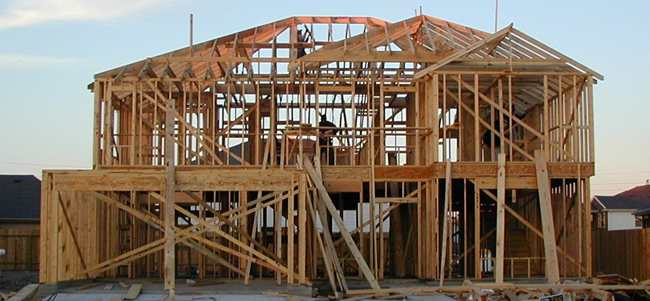
What is Self Contracting?
Self contracting is the audacious idea that homeowners can manage their own construction projects. By eliminating the general contractor (GC), homeowners accept responsibility for hiring subcontractors, ordering materials, permits and warranty issues – in hopes of big cost savings.
Several popular books on the subject fan the flames, claiming homeowners can save between 25% and 42% while achieving a better project. Are these claims true? Can self contracting dramatically increase both savings and quality?
Does Self Contracting Actually Save Big?
I’ve self contracted and was skeptical about these claims. But I’m in the construction business with industry connections. For a layperson’s opinion I called a client currently self contracting. After asking whether savings of 42% are possible, her first words were, “Wow, that seems like a really optimistic, and honestly, unrealistic number. But then again, there are a lot of unrealistic numbers in this whole business”.
She explained their reasons for self contracting weren’t cost oriented. Instead, no reliable GC was available. She’s a technical professional taking time off to raise kids, so why not try self contracting? Although the work isn’t finished yet, she expects only modest savings compared to hiring a good GC. “Yes, we probably are saving some money in our remodel”.
Of course more savings may be possible with homeowners willing to spend every waking moment searching Craigslist for deals. But my client feels 5% savings is realistic. In other words, don’t assume you’ll magically build an otherwise unaffordable project just because you’re self contracting. If huge savings are necessary to make the project feasible, your risk of trouble is also huge.
The Real Benefits of Self Contracting
Although big savings aren’t likely. My client found real benefits with self contracting. Upgraded finishes was a key benefit. “By doing this project the way we have done it we have nicer upgrades than we would have, if we would have used a GC the whole time. I have to agree with that. Contractor allowances could be so unreasonable that upgrade charges could really bite you in the behind”, she explained.
Flexibility also played an important role for my client’s willingness to self contract. General contractors are often considered intractable and set in their ways. By self contracting, she felt free to make changes or upgrades when desired. All without the fear of arguments or ridiculous change orders.
Some people simply prefer trying new things. They’re always looking for an adventure. And they’re willing to learn. Self contracting can provide an experience these homeowners relish.
The Real Drawbacks of Self Contracting
On the other hand, self contracting has sobering drawbacks. Perhaps my client’s biggest pain was careless subcontractors. Much of her possible savings were spent redoing sub-standard work. It’s hard to learn everything about quality construction for every trade, so you’re relying on others. Even general contractors deal with shoddy work, but their experience proves quite valuable. They’ve seen most problems before and know how to avoid bad situations. Since they work with the same subcontractors, problems often don’t even arise.
Self contracting is time intensive. “This is a full-time job and then some – with a steep and sometimes costly learning curve. Trying to find, keep, and schedule subs is not easy. The potential for lack of construction quality and timing issues translates into looking for subs a lot”, according to my client.
Which brings up an issue self contractors usually ignore. Any real understanding of cost savings should include the homeowner’s management time. According to my client, “good GCs save so much time. If we were to put a cost on me managing this project there is no savings”. Which makes sense to me. I once calculated my hourly rate for self contracting a project. I did much of the work myself and still only made six dollars an hour. My time would have been better spent working a few extra hours at work.
My project also lasted two or three times longer than normal. Expect project schedules to be significantly extended when self contracting. I’ve seen client’s self contracted projects last years. Unless you’re managing projects for a living, it’s hard to efficiently schedule materials and subcontractors.
The Bottom Line
If you’re technically inclined with time on your hands, self contracting may be a reasonable option. You’ll need a sense of adventure and willingness to learn. Rework can’t drive you into a tizzy. And don’t expect big savings. However, you can expect increased flexibility with changes and easy upgrades.
Thanks for explaining that a homeowner can be a self contractor who hires the subcontractors. I want to have a new house built over the next couple of years with a well in the backyard. I’ll worry about finding all of the contractors for each job, especially with well. I don’t have the tools or any idea on how to dig a well.